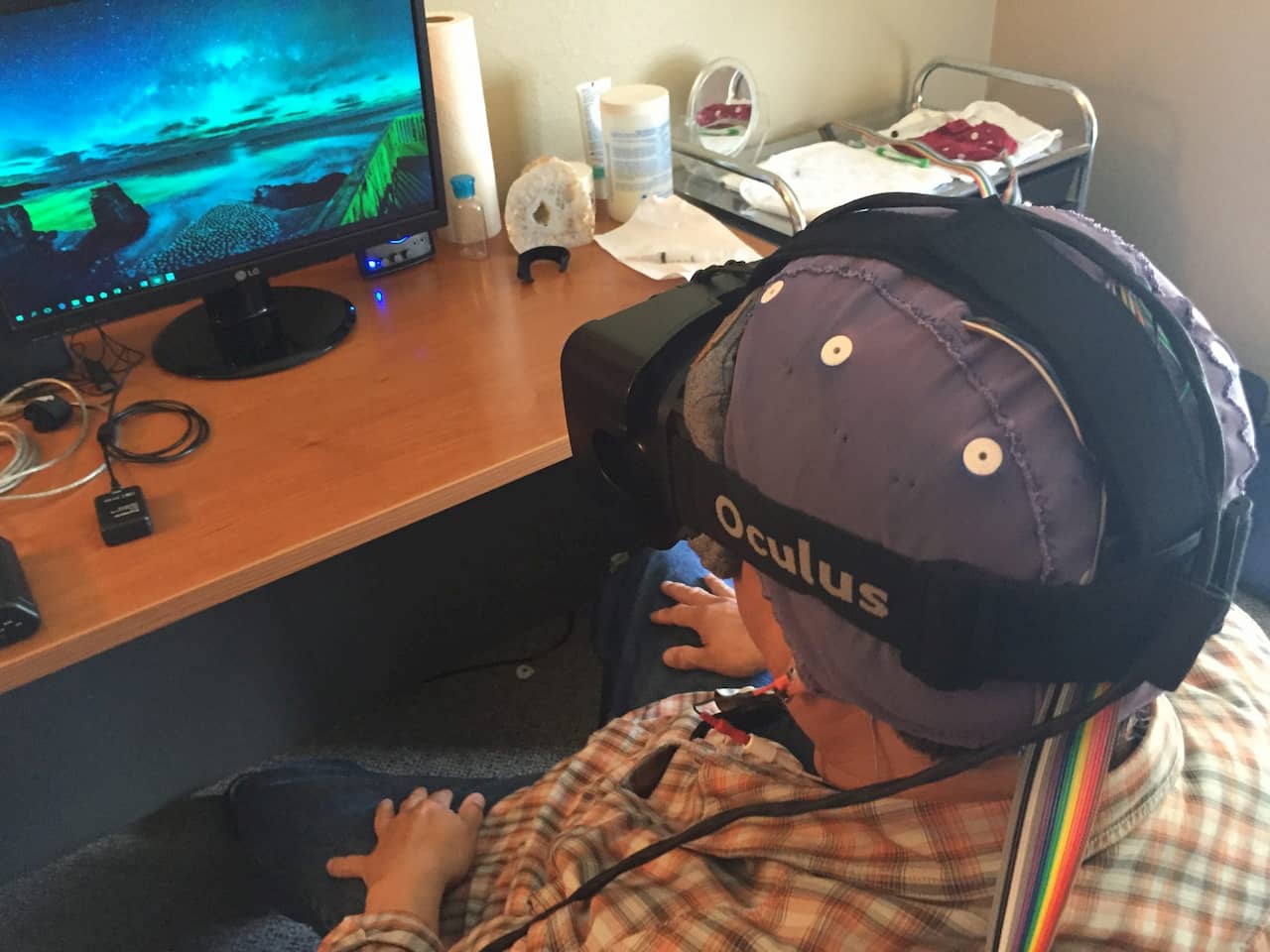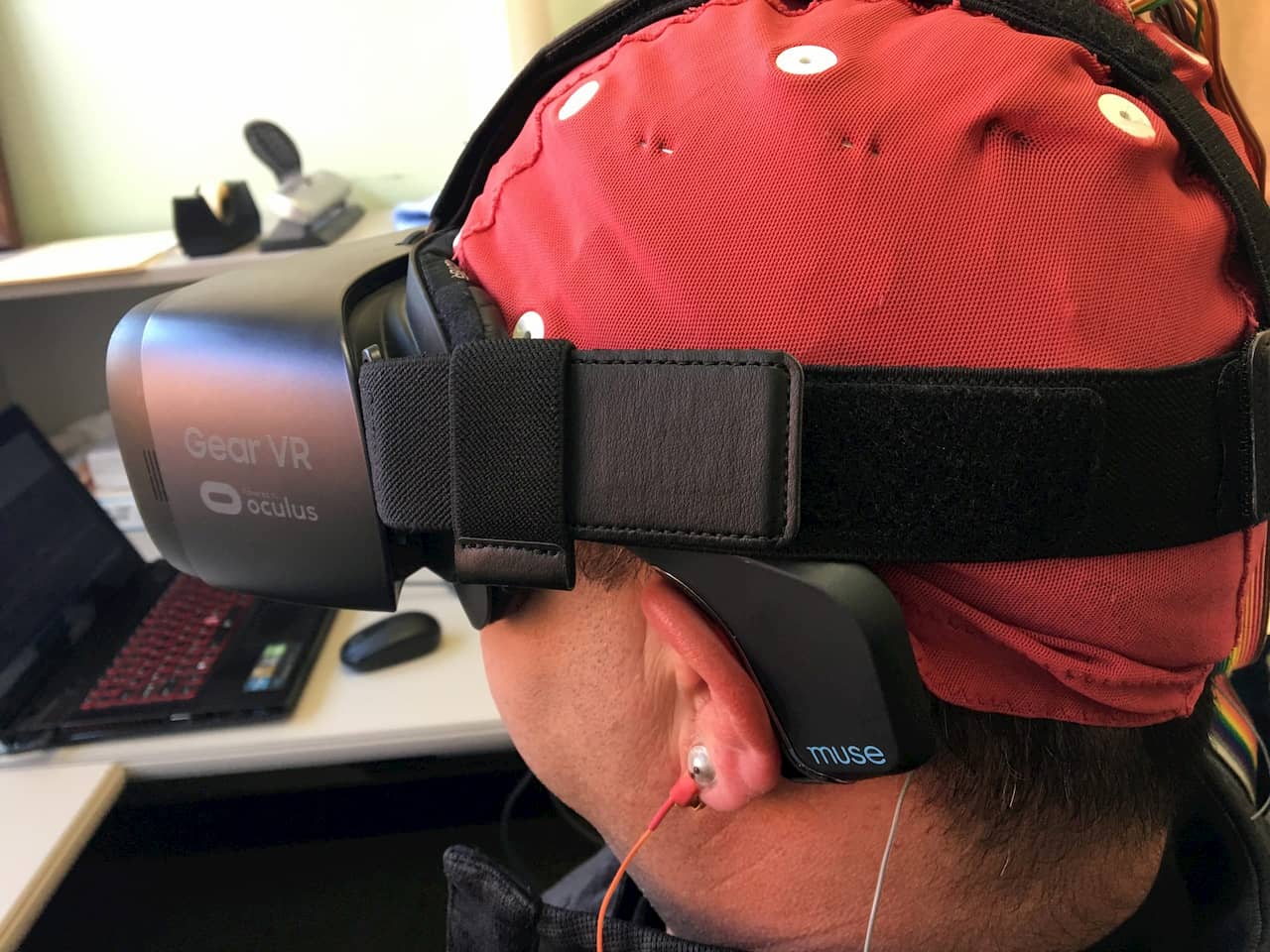VR for Positivity
The Journal of Neuroregulation published a study on Healium’s effect on a specific brain pattern associated with feelings of positivity.

About The Study
This study was designed to determine if a consumer-grade neurofeedback system (Muse) could be used in conjunction with specially designed VR environments (Healium) to impact gamma frontal asymmetry as well as create positive changes in mood states. Firefighters served as subjects and completed pre-post mood rating scales as well as 19-channel EEG recordings. An examination of sLORETA frontal lobe ROI’s demonstrated a post-intervention gamma asymmetry shift to the left in 3 of the 4 subjects. In addition, subjects generally reported changes in mood consistent with the frontal asymmetry changes. Overall, these results provide initial support for the idea that a consumer grade BCI/VR intervention can potentially have therapeutic utility and deserve further study. Read the full study here: VR and Anxiety Journal of Neuroregulation

The Science Behind Healium
Virtual Reality for Anxiety Reduction
Frontiers in Psychology published a study showing a reduction in anxiety after a 4 minute Healium experience. The study used quantitative EEG to measure the brain’s reaction. Read the full manuscript below.
VR for Positivity
The Journal of Neuroregulation published a study on Healium’s effect on a specific brain pattern associated with feelings of positivity.
VR Changes Mood Before Blood Donations
A study published in the Scholarly Journal of Psychology and Behavioral Sciences looked at Healium’s ability to quickly improve mood and reduce tension before blood donations.
VR for Empathy
This case study used quantitative EEG to examine changes to the anterior cingulate when watching a Healium virtual reality film.




